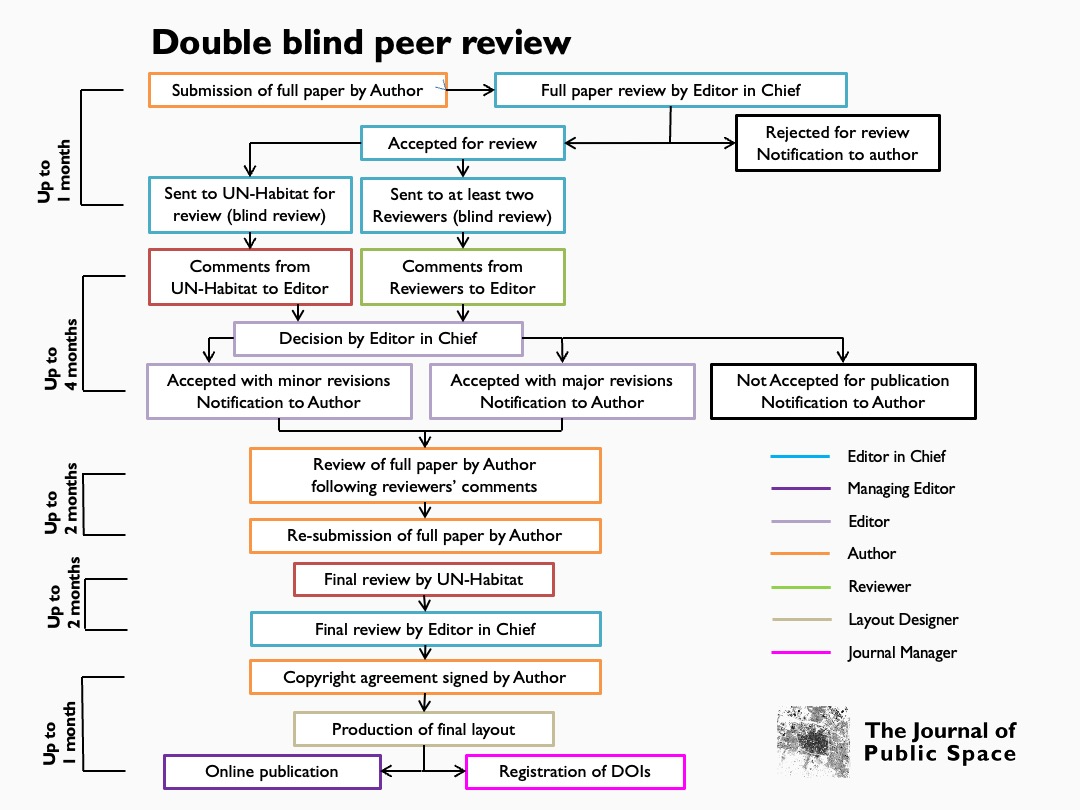Peer review process
ORIGINALITY
Submitted articles should not have been previously published and should not be under consideration for publication elsewhere. The Journal of Public Space takes issues of copyright infringement, plagiarism or other breaches of best practice in publication very seriously: we use a Plagiarism Detection Software, generously provided by our partner the University of the Sunshine Coast (Australia), to verify originality of all submissions.
Peer review process both for academic and non-academic contents
RESEARCH PAPERS - double blind peer review
The Journal of Public Space applies a double blind peer review process, based on a distinguished board of editors and editorial advisors, to ensure the quality and high standards of research papers. All contributions will be initially assessed by the Editor-in-Chief for suitability for the journal. Later each paper will be assessed by at least two independent reviewers and any identifying information in relation to the author will be removed during the review process. Reviewers follow an evaluation framework and recommendation guidelines to ensure objectivity and fairness. Each referee returns its review and recommendations on the acceptability of the submission, with comments to authors.
The Editor-in-Chief is responsible for the final decision regarding acceptance or rejection of articles. The Editor-in-Chief's decision is final.

NON-ACADEMIC VIEWPOINTS/CASE STUDIES/PORTFOLIOS - editorial review
The Journal of Public Space applies an editorial review for viewpoints, case studies and portfolios, engaging qualified guest editors with a specific expertise in public space practice.
The Editor-in-Chief is responsible for the final decision regarding acceptance or rejection of articles. The Editor-in-Chief's decision is final.

All articles published in The Journal of Public Space, both research articles and viewpoints/case studies/portfolios, are reviewed by UN-Habitat before publication, engaging qualified experts affiliated to the Global Public Space Programme.
FINAL DECISION
The final decision by the Editor in Chief may take one of three forms:
- Accepted with minor revisions
- Accepted with major revisions
- Not accepted
and will be accompanied by comments from peer reviewers, from UN-Habitat and from the Editor in Chief.
PUBLICATION
Authors will receive instructions on how to submit the final version of accepted articles, ready for publication, and will be asked to sign a copyright agreement.
All articles are published as open access contents, so they will be immediately and permanently free for everyone to read, download, copy and distribute, under a Creative Commons Attribution-NonCommercial 4.0 International License.
